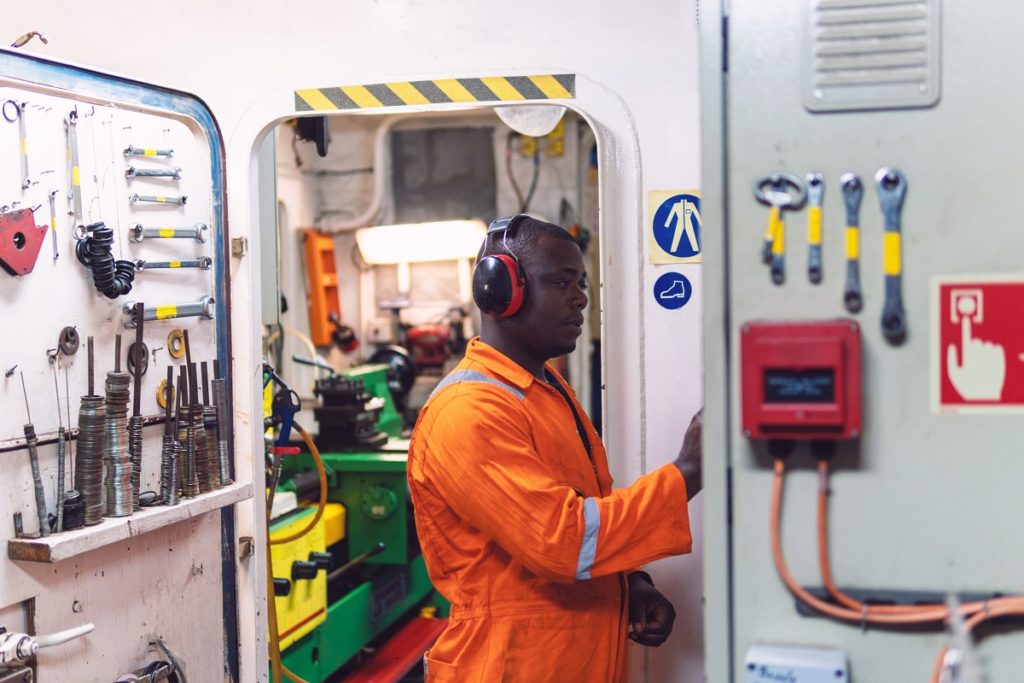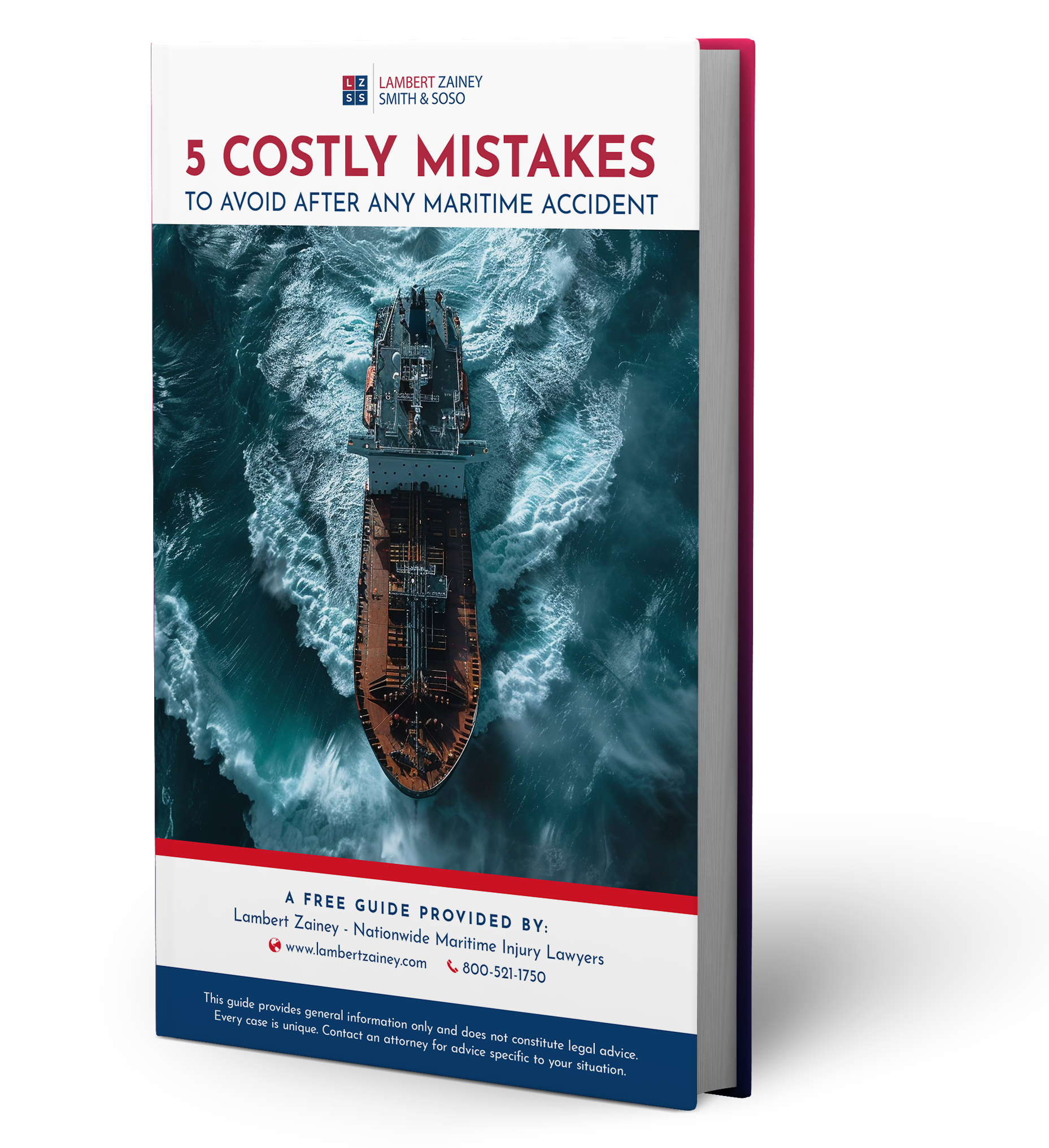We all know that water and electricity can be a deadly combination. However, in today’s maritime industry, electricity is just as important as water to a vessel’s abilities to transport cargo. This makes the possibility of injury due to maritime electrical accidents an ever-present risk to a vessel’s crew.

Maritime accidents caused by a shipboard electrical hazard can result in severe, even fatal, injuries such as shocks and burns. They can also cause shipboard fires and explosions. Power failures due to improper maintenance can disable essential equipment and services during critical times.
In a workplace surrounded by a water, it’s necessary for all seamen to be on the lookout for potential hazards that could lead to maritime electrical accidents at all times. Owners need to regularly inspect, maintain and repair their vessels’ electrical systems to ensure they are safe and seaworthy.
According to OSHA, shipboard electrical hazards are often the result of a short, fault, or the opening or closing of an energized circuit. These hazards can result from:
Shipboard Electric Shock Injuries
Each year, too many seamen are injured in shipboard electric shock accidents.
Electric shock is the physical stimulation or trauma caused by the flow of electricity through the human body. It can occur during contact with or by being near live (energized) electrical parts. Depending on the severity of the shock, injuries caused by an electric shock can include:
Electrocution is death from an electric shock.
Shipboard Electric Arc Accidents
Electric arc accidents, such as arc flash, the release of heat and bright intense light from an electric arc, or arc blast, the explosive release of molten material from equipment caused by a high amperage electric arc, can also result in serious injuries. Electrical arcs are often caused by equipment failure resulting from poor maintenance or overuse.
Accidents Caused by Shipboard Power Failures
Power failures in a vessel’s navigational controls, interior lights, water pumps, winches or other systems during a critical time could result in disaster for everyone onboard.
Get Our FREE Guide to Protect Your Claim
What you do after an accident is critical. Insurance companies will try to get you to make mistakes that can hurt your claim. Our free guide can help you avoid these traps.
Download our complimentary guide: “5 Costly Mistakes to Avoid After Any Maritime Accident” to arm yourself with the knowledge you need to protect your rights.
Speak With an Experienced Maritime Injury Lawyer
Lambert Zainey has been protecting the rights of injured seamen since 1977. As one of the nation’s leading maritime law firms, we’ve recovered billions of dollars in settlements on behalf of our clients.
If you’re a seaman who has been injured in a shipboard electrical accident that occurred due to the unseaworthiness of a vessel or its crew, the Jones Act and other maritime laws give you the right to seek compensation for the damages caused by your injuries.
Contact the Lambert Firm to schedule a free initial consultation meeting to discuss your case with an experienced maritime injury attorney. We’ll review the facts in your case, answer any questions you may have and provide you with honest advice on your options for moving forward with your case.
Don’t delay — statutes of limitation apply in maritime injury claims; if you wait too long, it may be too late to take action.
We all know that water and electricity can be a deadly combination. However, in today’s maritime industry, electricity is just as important as water to a vessel’s abilities to transport cargo. This makes the possibility of injury due to maritime electrical accidents an ever-present risk to a vessel’s crew.

Maritime accidents caused by a shipboard electrical hazard can result in severe, even fatal, injuries such as shocks and burns. They can also cause shipboard fires and explosions. Power failures due to improper maintenance can disable essential equipment and services during critical times.
In a workplace surrounded by a water, it’s necessary for all seamen to be on the lookout for potential hazards that could lead to maritime electrical accidents at all times. Owners need to regularly inspect, maintain and repair their vessels’ electrical systems to ensure they are safe and seaworthy.
According to OSHA, shipboard electrical hazards are often the result of a short, fault, or the opening or closing of an energized circuit. These hazards can result from:
Shipboard Electric Shock Injuries
Each year, too many seamen are injured in shipboard electric shock accidents.
Electric shock is the physical stimulation or trauma caused by the flow of electricity through the human body. It can occur during contact with or by being near live (energized) electrical parts. Depending on the severity of the shock, injuries caused by an electric shock can include:
Electrocution is death from an electric shock.
Shipboard Electric Arc Accidents
Electric arc accidents, such as arc flash, the release of heat and bright intense light from an electric arc, or arc blast, the explosive release of molten material from equipment caused by a high amperage electric arc, can also result in serious injuries. Electrical arcs are often caused by equipment failure resulting from poor maintenance or overuse.
Accidents Caused by Shipboard Power Failures
Power failures in a vessel’s navigational controls, interior lights, water pumps, winches or other systems during a critical time could result in disaster for everyone onboard.
Get Our FREE Guide to Protect Your Claim
What you do after an accident is critical. Insurance companies will try to get you to make mistakes that can hurt your claim. Our free guide can help you avoid these traps.
Download our complimentary guide: “5 Costly Mistakes to Avoid After Any Maritime Accident” to arm yourself with the knowledge you need to protect your rights.
Speak With an Experienced Maritime Injury Lawyer
Lambert Zainey has been protecting the rights of injured seamen since 1977. As one of the nation’s leading maritime law firms, we’ve recovered billions of dollars in settlements on behalf of our clients.
If you’re a seaman who has been injured in a shipboard electrical accident that occurred due to the unseaworthiness of a vessel or its crew, the Jones Act and other maritime laws give you the right to seek compensation for the damages caused by your injuries.
Contact the Lambert Firm to schedule a free initial consultation meeting to discuss your case with an experienced maritime injury attorney. We’ll review the facts in your case, answer any questions you may have and provide you with honest advice on your options for moving forward with your case.
Don’t delay — statutes of limitation apply in maritime injury claims; if you wait too long, it may be too late to take action.









